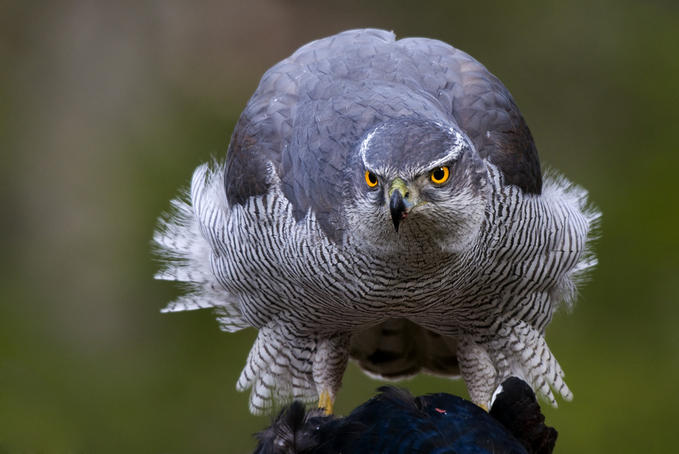
This will probably be the only bad review you’ll ever read of H is for Hawk.
Note: it’s not really a bad review, it’s a good review with a sidebar. Helen Macdonald writes breathtaking prose, her story is poignant and filled with all kinds of fascinating bits of information, and she has a likable voice. So what’s wrong with the book?
T.H. White.
Macdonald is, among her many accomplishments, a falconer. Her autobiographical story alternates with her meditations on T.H. White, who wrote The Once and Future King and The Sword in the Stone, and who was also a falconer – but a very, very bad one.
Macdonald tries to come to terms with her father’s death by attempting to train a Northern Goshawk, resulting in the the lovely descriptions and meditations found within H is for Hawk. White tries to come to terms with his sadism and repressed homosexuality by attempting to train a Northern Goshawk, resulting in the harrowing and excruciating accounts found within The Goshawk (published in 1951), which Macdonald weaves within her book.
White suffered through a bad childhood and was beaten at his British boarding school; he reacted by becoming a sadist himself, beating smaller classmates and helping to push one out a window. Do I have sympathy for haunted people with bad childhoods? Yes. Do I have sympathy for haunted people who subject animals – be they captive wildlife or household pets – to all kinds of atrocities, then are held up as tragic examples of struggling humanity? No.
When she was eight, Macdonald read The Goshawk and was horrified; when she read it again after her father’s death, she somehow managed to admire and sympathize with the author, despite his reprehensible treatment of his bird. To her credit, she vacillates between condemning and lauding him, but ends up calling his version of falconry “a metaphysical battle, like Moby-Dick or The Old Man and the Sea.” Spoiler: the hawk ends up like the fish, not the whale.
“None of (his treatment of the hawk) was conscious,” writes MacDonald. This, excuse me, is bullshit. She also writes, “White saw that the hawk was himself, a bird that was a ‘youth who had been maddened by every kind of clumsiness, privation, and persecution.’ ” If he saw it and wrote about it, then it was conscious, wasn’t it?
White, battling with his past, his present, his future, a changing England, the upcoming war, his hidden homosexuality, his sadism, and anything else that might enter his head, takes it all out on a hapless goshawk stolen from a nest by a German falconer. Goshawks – the largest and fiercest of woodland hawks – are wild, extremely difficult birds for the most talented experts to handle, let alone a man with no knowledge of falconry and no recorded empathy with any living creature.
White fits “Gos” with jesses, the leather anklets that prevent him from flying away; from there, he is supposed to use food as a lure to get him to hop on a glove. Instead of allowing him to become hungry, as the old falconry book he is reading instructs, White stuffs him so full of food the bird hates the very sight of him. When Gos doesn’t come when he’s called (hint: why would he? His lure is food) White yanks him off his perches. The terrified bird keeps leaping off his glove and trying to fly away, so he hangs him, upside down, by his feet. When the exhausted Gos finally approaches him for food, our hero becomes frightened and runs away.
Finally – finally – the broken-feathered, tormented bird flies from a railing to White’s glove. That night the victorious “falconer” goes on bender and writes in purple, heaving prose: ““I cry prosit loudly and repeatedly, quaff fiery liquids of triumph, drink damnation to my enemies, and smash the glasses on the floor.” Eye roll. Groan.
Why am I so fixated on this single part of a multi-faceted book? Because Macdonald has hundreds of critics swooning over this “brilliant, flawed man” who can’t decide whom he hates more: himself or his hawk, whom he later describes as “ … a Hittite. A worshipper of Moloch. He immolated victims, sacked cities, put virgins and children to the sword.”
For God’s sake – he was a goshawk, not the star of a D-grade gladiator movie. And he was a goshawk who didn’t turn on his handler and talon his face off, which he would have been perfectly justified in doing.
Goshawks are fiery spirits not meant for captivity. There are very good falconers in the world, ones who love their birds and treat them like their children; if a goshawk is going to end up as someone’s falconry bird, I want them to end up with people like this – people like Macdonald, who makes sure her bird is comfortable and not stressed.
Here is the problem with this otherwise beautiful book: T.H. White is a man to be scorned, not praised. He may not be Michael Vick, but he’s certainly no Helen Macdonald, either. If you’re determined to force a wild animal to become a symbol of what’s wrong with you, then treat them with care and respect – don’t abuse them, then leave them bound and hanging by the jesses of your own shredded psyche.
Banner photo by Kjartan Trana; third photo by imgbuddy.com


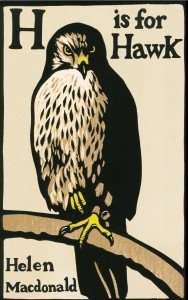
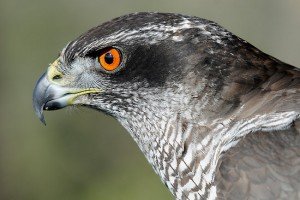




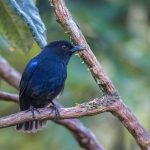
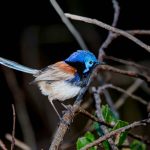
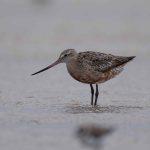
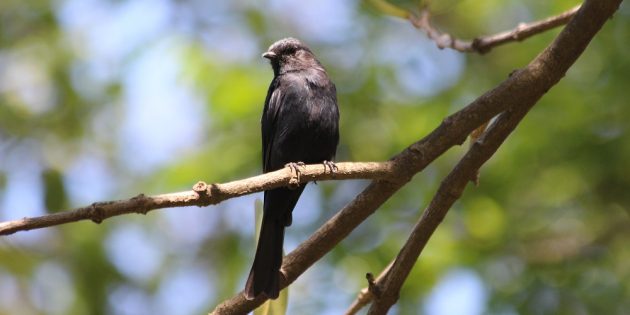

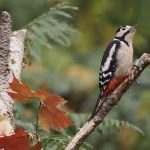
My reading of the book was that Macdonald wouldn’t ultimately disagree with you or her own eight-year-old self in condemning White – but since the book is so much about how using animals as symbols can be a strategy for avoidance, she has to walk the road of understanding how he came to be such a bad falconer via sympathy to show where he went wrong. Anyone who comes away from the book swooning over White – as opposed to shaking their head sadly over the entire fiasco – didn’t get what I got out of it at all.
Thanks for writing, Carrie. I think readers who have any affinity with the natural world would get it, but I’ve read so many reviews by people who are completely clueless. How “The Goshawk” can be considered funny is beyond me. I’m sure many readers can find a sympathetic grey area in White’s treatment of his hawk … I can’t. If anything, he should have gone overboard in not subjecting a defenseless bird to what he’d been subjected to himself.
This is an eye-opener for me. I’ve never read The Goshawk, and I only recently put H is for Hawk on my list- but I’ve read many other books about falconry, and recall well the chapters in The Once and Future King about birds of prey. (Or was it in The Book of Merlyn?) at the time though I knew nothing of how hawks are trained, I found the very idea fascinating. Now I don’t know if I want to read The Goshawk at all, it sounds distressing. And a dismal revelation about an author I have long admired for his words and storytelling.
Thanks, Jeane. He wrote The Once and Future King after his experience with this poor goshawk, the fictional one made out a lot better than the real one. I’m horrified to hear they’re going to make a movie out of it, which means prospective bad falconers will be crawling out of the woodwork.
The thing that Macdonald did was examine White as a human being, making him sympathetic while not flinching from his faults. That allows us to understand him as a human being and to recognize human failings tangled up with real, human desires to do good, to learn, to connect with others, to improve. He may not have been successful in your eyes, but Macdonald’s portrait is a better, wiser, and more compassionate approach than the tactic—so common in today’s level of discourse—of polarizing the issue, vilifying the man, and presenting it as an open-and-shut case about which there can be no nuance or sympathy.
Interesting approach, Hugh, but what kind of good was White attempting to do? He was attempting to “go feral” and escape the human race. As I wrote – I sympathize with what he’d been through and understand why he’d want to live alone with a wild hawk. However, he treated the bird sadistically, neglected him, and eventually killed him through sheer stupidity. He felt badly for a few seconds, then tried to get another one. What do you consider the goshawk to have been? Expendable collateral damage in White’s war with himself? I’ll feel more compassion for White when you and MacDonald feel more compassion for his victim. She didn’t just mention White, she made him the co-star of her book. God help birds of prey when the movie comes out.
I am a falconer. Falconers lose birds. There are a dozen ways, it sucks, it breaks your heart and you will never ever forget it. In falconry, you will experience your highest highs and your lowest lows. In the wild, 1 in 4 red tails make it to their 2nd year.
T.H. doesn’t embellish or vier from what actually happened. It took him years of convincing by others to publish this. He was embarrassed by the numerous mistakes he made training his first hawk. It was clear that Hellen was obsessed with White and how bad he was with his first bird. She of all people should know better, these birds were trained in 2 very different times. A Goshawk is an advanced bird and this wasn’t hellen’s first raptor. It was White’s (probably his biggest mistake).
I differ from your review of the 2 books. TH White is the OG and Hellen is trying with all her might to make a better book. It was good, it wasn’t nearly as raw. I did enjoy reading them both, glad I read The Goshawk first so I could understand what Hellen was referencing.
To see my falconry credit: Instagram @cosmos.owl
TH White was to falconry what ISIS to reasonable discourse ,i’m pleased to say this is a well recognised point among the falconry community ,his book sits alongside such other glorious failures like “The Harris Hawk by Lee William Harris other apex predator one about killer red shouldered hawks ,comical and annoying in equal measure, although in fairness the latter two probably wont kill your bird ,and pale into insignificance compared to the absolute rubbish pumped out daily on falconry forums by over night gurus ,usually Harris hawkers in the UK ,i enjoyed Helen’s book shes a friend of a friend who is credited in it, i read it at a time when id not long lost my dad so could relate to aspects of that although i’m far less maudlin about such things ,she made an excellent documentary film on training her gos and unusually for such things it came over very well and very accurately ,the only real critics of White and what he did are falconers ,joe public knows no different ,everything is a baby eating eagle to them ,so its totally moot if somewhat heartbreaking for reasons that only falconers can grasp,read fisher catching merlins with peregrines ,and thats a classic
Interesting discussion. In case of interest I wrote a book called Looking for the Goshawk (Bloomsbury, 2013) with quite a lot about T. H. White and his book. My book is about our relationship with goshawks through history. You don’t have to publish this message Suzie but I’m always interested in making contact with writers with shared interests. Conor